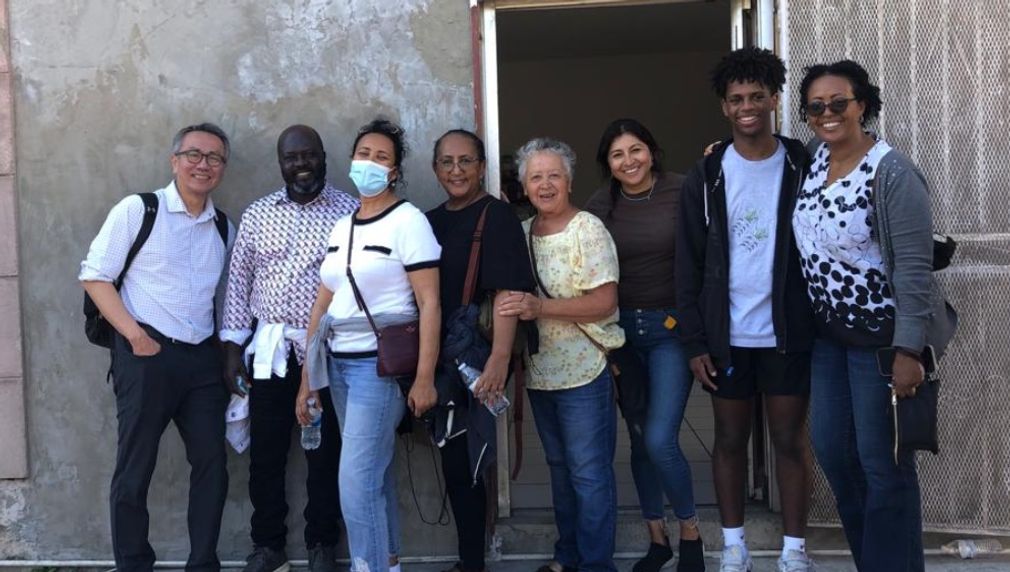Empowering Immigrants with Transitional Housing and Mental Health Care
Empowering Immigrants with Transitional Housing and Mental Health Care is an initiative designed to provide safe, supportive transitional housing and accessible mental health care services for immigrants facing homelessness in Los Angeles. This project aims to foster stability, promote well-being, and enable these individuals to rebuild their lives with dignity and hope.

What is the primary issue area that your application will impact?
Affordable housing and homelessness
In what stage of innovation is this project, program, or initiative?
Expand existing project, program, or initiative (expanding and continuing ongoing, successful work)
What is your understanding of the issue that you are seeking to address?
The growing crisis of homelessness among immigrants in Los Angeles is a complex challenge, deeply exacerbated by mental health issues and limited access to care. ACPHC’s multifaceted approach to this issue includes the Permanent Supportive Housing program, which not only offers a roof but also a stable environment for individuals grappling with chronic health conditions or disabilities. Furthermore, the Housing First model implemented by ACPHC eliminates the traditional barriers to housing access, prioritizing it as a fundamental need while coupling it with robust supportive services. This method has demonstrated significant effectiveness, particularly for those dealing with mental health challenges or substance use disorders. By addressing these barriers and ensuring continuous support, ACPHC facilitates the successful integration of immigrants into the community, promoting long-term stability, well-being, and dignity.
Describe the project, program, or initiative this grant will support to address the issue.
The initiative aims to support immigrants facing homelessness through transitional housing and integrated mental health services. The project establishes safe, culturally sensitive transitional housing equipped with necessary amenities, ensuring a stable living environment. Alongside housing, the program provides tailored mental health services including counseling and therapy, specifically designed to address the trauma and challenges faced by immigrants.
ACPHC's commitment extends to offering a full suite of rehabilitative services that support recovery, employment, education, and social well-being, reflecting a holistic approach to lift individuals from homelessness. This includes family reunification, immigration assistance, and access to a broad range of community-based outpatient and residential treatment services to meet the specific needs of our population of focus.
The bilingual, culturally competent staff, and partnerships with local organizations will facilitate access to essential resources and promoting successful community integration. Regular assessments ensure the program adapts effectively to the needs of participants.
Additionally, the case management system aids in identifying individuals in need of specialized support, including those at risk of losing their children to the Department of Children and Family Services (DCFS). The program ensures that participants receive culturally appropriate support to rebuild their lives with dignity and hope.
Describe how Los Angeles County will be different if your work is successful.
Social and economic inequity presents itself in a number of ways in under-resourced communities, including in the form of reduced access and information about health. Under-resourced communities across the county tend to be very ethnically and linguistically diverse. Barriers to health and wellness have strong cultural ties, including stigma and gender norms, which affect the willingness of people to seek help or be supported by their community when they seek help. Our initiative will reduce homelessness among immigrants, fostering a more integrated and resilient community. Success will be marked by a higher number of individuals achieving permanent housing, enhanced mental health and self-sufficiency. Through a scalable model of transitional housing and mental health care, ACPHC plans to expand its reach, forming more partnerships and securing additional funding. Our vision is rooted in evidence-based practices that have proven effective in stabilizing lives and promoting recovery.
What evidence do you have that this project, program, or initiative is or will be successful, and how will you define and measure success?
For this proposed initiative, success will be defined and measured through a combination of quantitative and qualitative metrics. Key performance indicators will include the number of individuals successfully placed in transitional housing, receiving mental health services, and the duration of time participants remain in stable housing post-program.
Regular assessments will track improvements in mental health outcomes using standardized tools such as the PHQ-9 for depression and the GAD-7 for anxiety. Success will be gauged by participants' progress in life skills and overall well-being through pre and post program surveys.
Qualitative measures will involve collecting personal stories and feedback from participants, providing insight into their experiences and the program's impact on their lives. Monthly and annual reviews will ensure continuous monitoring. This comprehensive evaluation approach will ensure the initiative effectively addresses homelessness and mental health challenges.
Approximately how many people will be impacted by this project, program, or initiative?
Direct Impact: 150.0
Indirect Impact: 500.0